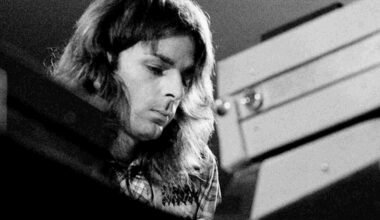A great session musician can walk into any studio and adapt to whatever style is thrown at them. Whether it’s country, jazz, or blues, the ability to blend seamlessly into any genre is what separates the true professionals from those just trying to fake their way through. While Slash never had to change his signature style, there were some artists who proved to be far more challenging than others.
If anyone understood the difficulties of collaboration, it was Guns N’ Roses. Axl Rose’s unpredictable approach to music often forced Slash into new territory, whether crafting soaring anthems or breaking out flamenco-style solos on Use Your Illusion. But after leaving the band, Slash found himself navigating an entirely new world—one where he had to adapt to different artists and their unique expectations.
Throughout the 1990s, Slash became one of the most sought-after guitarists, working with legends like Carole King, Bob Dylan, and even blues icon B.B. King. Yet, none of these experiences compared to the challenge of playing with Ray Charles.
Unlike blues or rock guitarists, Charles came from an entirely different musical universe—one rooted in jazz, R&B, and complex arrangements. Even with his ability to jam with nearly anyone, Slash found himself in deep water the moment he walked into the studio with the legendary pianist.
Recalling the experience in an interview with Howard Stern, Slash admitted that his struggles began before he even played a note. “You know, Ray Charles’ chord charts are not like anybody’s chord charts,” he said.
“The reason I had to read them was just to remember all the different chords—there were so many, and they were all jazz chords, which I hardly ever use.”
For a guitarist known for raw, blues-infused rock and roll, diving into Charles’ world was like learning an entirely new musical language on the spot. While some guitarists could have handled the challenge with ease, Slash was forced to stretch beyond his comfort zone.
Despite the difficulties, he still managed to make it work. His guitar lines, though not as fluid as those of a seasoned jazz player, added a unique energy to the collaboration. The contrast between his gritty rock style and Charles’ sophisticated arrangements created something special—something that might not have happened with a traditional jazz guitarist.
Looking back, the experience may have even influenced Slash’s playing in subtle ways. Though he remained committed to the blues-rock traditions of Jimmy Page and Joe Perry, working with Charles pushed him to explore new approaches—ones that would ultimately make his music even more dynamic.







